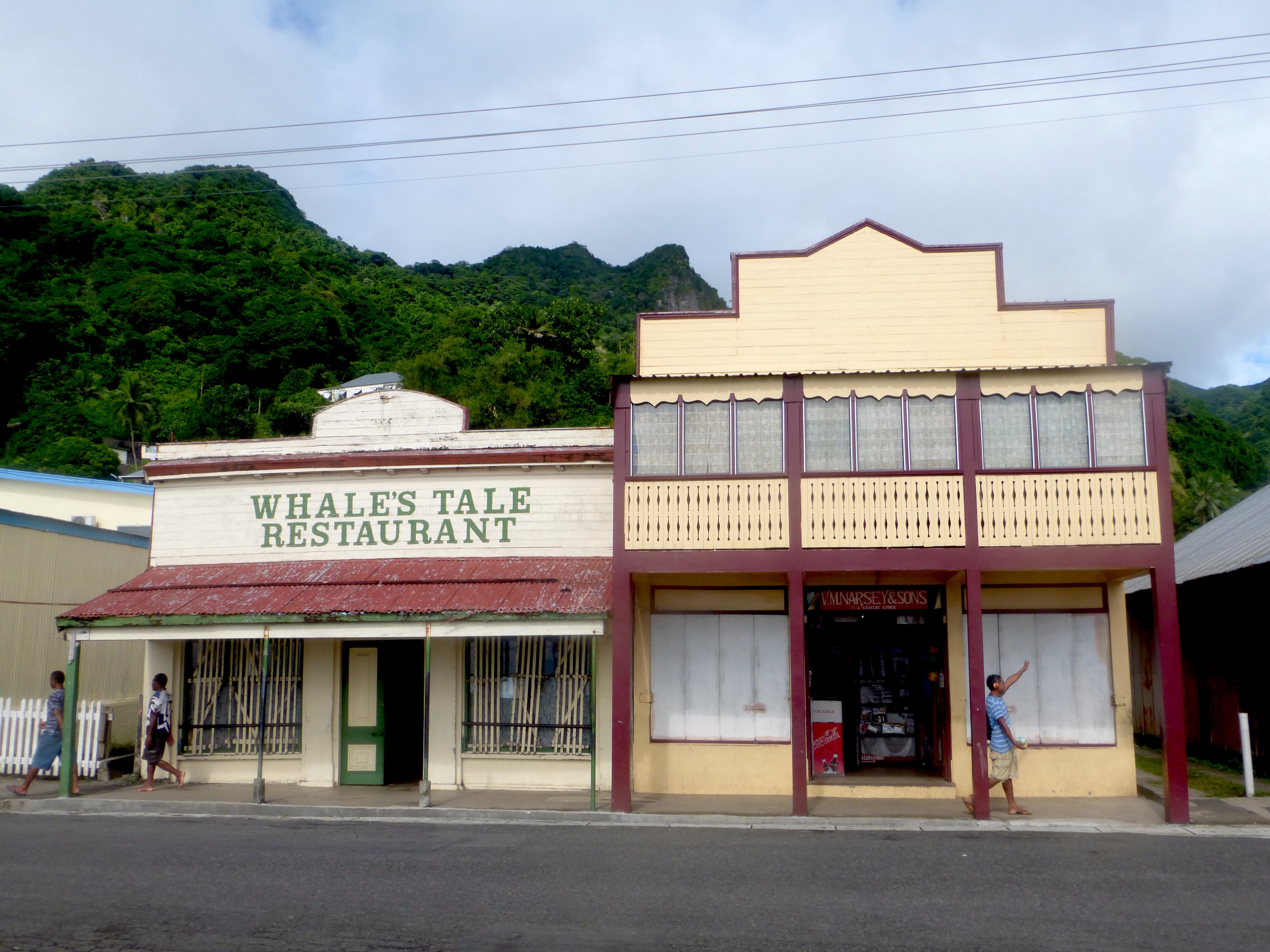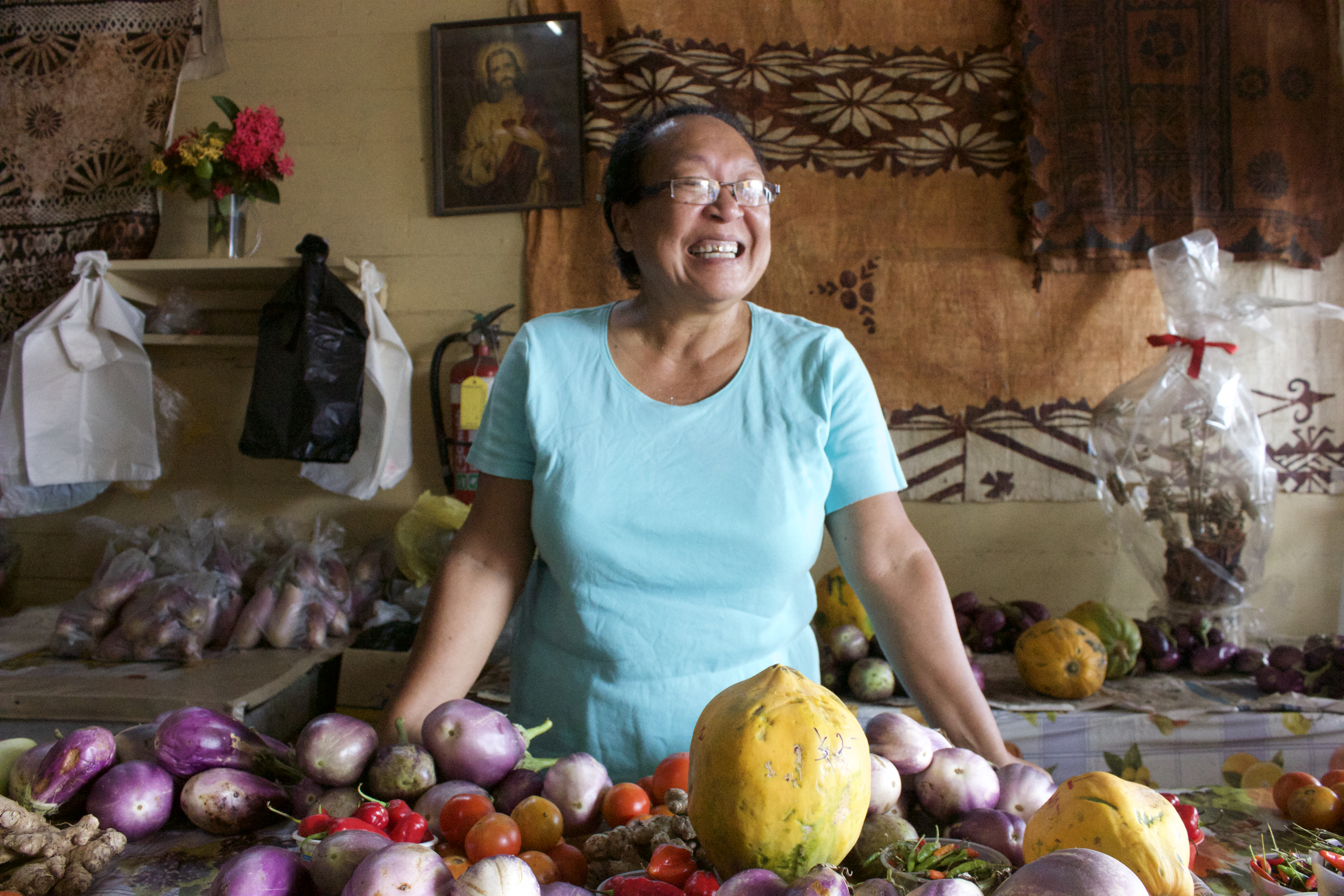

(Photo: Eric Fortin/Flickr)
Ovalau is Fiji’s fourth-largest island, but once you arrive via ferry from Suva, it only takes about an hour to drive from the port, on the western side, to the town of Levuka on the eastern shore. The gravel road to Levuka hugs the coast, separating the sea, which splashes up onto the road at high tide, from the communities that sit just on the other side. Some of the houses closest to the road are little more than concrete shells, abandoned after Cyclone Winston blew across the islands in 2016, flattening houses, uprooting trees, and killing two on this island of just over 9,000 people.
Levuka’s main drag is a snapshot of history, retaining the look of a 19th-century port settlement. The city was the first capital of Fiji, not the “old capital”—and if you call it the “old capital,” residents will correct you, sometimes teasing you gently while taking the opportunity to boast about their birthplace.
Click here for more on Fijians’ everyday climate struggles.
When I meet Teresa Yee Show, she’s at work in an unmarked minimart, presiding over several tables heavy with fruits and veggies; across the store, tiny paper bags of kava go for two Fijian dollars a piece, and the middle of the concrete floor is given over to several piles of coconuts. The shop belongs to Yee Show’s youngest sister and brother-in-law, but she’s helping out for the day. In the back, a group of young boys are lying across wood pallets topped with woven mats, watching Wonder Woman on television.

(Photo: Kate Wheeling/Pacific Standard)
Yee Show grew up in Levuka. Both her grandfathers were “pioneer Chinese,” her brother-in-law tells me; they moved to Fiji in the 1800s to do business and married Fijian women. I ask Yee Show if she sees any signs of climate change in Levuka, and she offers a ready response:
First of all, I want to express my dissatisfaction with [Donald] Trump, because he didn’t want to support us. America has the resources, the money, and the personnel and the expertise and everything. They should be the ones that are helping us because we are drowning.
In Fiji we have several villages that have been relocated because of climate change—one village in Ba because of a landslide, but most of it is sea levels rising.
Here in Levuka, since I’ve been a child, we used to swim a lot here. When we were little children in the early 1960s, my grandmother would take us out at nighttime; we would take our torches and look for seashells, little crabs, and we would bring it home and we would cook it and all eat as a family. But now we can’t do that because we can’t find the sea shells. To swim on this beachfront here, it’s very dirty—pollution from the [fish-canning] factory, and the oil from the fishing boats—so it’s not safe now to be swimming.
The Japanese government built our sea wall, and during Winston last year, most of it got blown down. When the spring tide comes in, it goes through the villages, and we can’t plant because it’s all contaminated by the sea. Then the hurricane comes again and makes it worse. Even now we’re still trying to recover from the last cyclone. Our coconut trees have disappeared, and our fruit trees, our mango trees, it’ll take another 10 years [to recover].
It’s affecting us most in the Pacific because we are just covered by ocean. You’re all right, you’re from a big continent, big mountains, big rivers. Us—we’re just a tiny dot.
[Trump] doesn’t want to listen to our little cry; we’re just a dot in the ocean. But we are humans as well. It’s not our fault we are drowning. It’s the big industrial countries that are making us drown.




